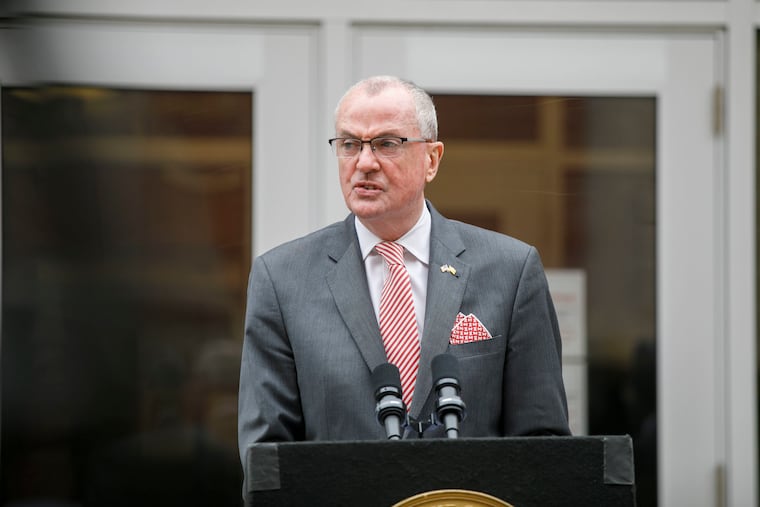New Jersey Gov. Phil Murphy signed a record $46.4 billion budget, boosting spending by 15%
The budget includes checks of up to $500 to thousands of families, making an almost $7 billion pension payment and boosting overall spending by 15% over last year.

New Jersey Gov. Phil Murphy signed a record $46.4 billion budget Tuesday, sending out checks of up to $500 to 760,000 families, making an almost $7 billion pension payment, and boosting overall spending by 15% over last year.
Murphy signed the budget alongside other officials and lawmakers and hailed the spending plan as the “dawn of the new post-COVID day.”
“This is a budget that pays our bills, it meets our obligations and builds a brighter future,” said Murphy, who is seeking reelection this year.
The budget passed the Democratic-led Legislature along partisan lines. Republicans objected, saying the higher spending was unsustainable going forward.
New Jersey carried more than $10 billion in surplus into the new fiscal year, which starts on Thursday, on the strength of healthy sales and income tax collections. State Treasurer Liz Muoio called it “a dramatic about-face” for the state’s economy after the COVID-19 pandemic.
About $5.9 billion will remain unspent, though almost $4 billion of that is earmarked for paying down the state's debt.
The rest of the new spending is being spread out across departments and accounts, with hundreds of millions going to taxpayers in the form of new relief, $505 million more into the public pension, which will be fully funded for the first time in 25 years under this budget, and $580 million in new aid for schools.
The total pension payment will tally $6.9 billion, up about 44% over last year. Lawmakers raised the amount from the governor’s request of $6.4 billion because of the positive tax collections. Muoio said the higher payment will save the state $1.5 billion over 30 years.
“We're making the full pension payment," Senate President Steve Sweeney said to applause. “You know the pension system, if we hadn't started funding it it would have went bankrupt. ... That's an investment in people."
It’s the first time since 1996 the state will make a full pension payment — the amount actuaries have determined the state must pay to meet its share. Despite the full payment, New Jersey will carry an unfunded liability of about $51 billion.
The state is also flush with more than $6 billion in cash from the federal American Rescue Plan. Of that, $500 million would go to help tenants facing eviction, $250 million will go toward utility relief, $180 million for ventilation in schools, and $100 million for expanded child care. The budget also uses federal funds to provide $600 million over three years to give an additional year of special education for 22-year-olds with disabilities.
The budget has almost $500 million in tax givebacks for residents, though the biggest chunk is a one-time benefit: checks of up to $500 for families making up to $150,000, or up to $75,000 for those filing individually. Filers must have at least one dependent child. The rebate will go to an estimated 760,000 families. It costs $319 million.
The budget updates how New Jersey calculates a property tax rebate for older and disabled residents, changing the basis for the benefit calculation from 2006 to 2017. That will increase the average benefit for seniors and the disabled by about $130, according to lawmakers.
The spending plan sets aside almost $4 billion to help pay down debt, with $2.5 billion for lowering debt payments and $1.2 billion for capital projects so officials can avoid new borrowing.
There are no new taxes or fees.
Aside from concerns about sustainable funding, Republicans decried the plan for failing to spend more to update outdated computer systems at the state’s Motor Vehicle Commission and Labor Department.
Along with the governor, all 120 members of the Legislature are up for election this year.